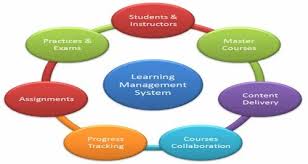
Learning Management Systems (LMS) are revolutionizing the way industries train and educate their workforce, and the accounting industry is no exception. The dynamic nature of financial regulations, compliance requirements, and accounting technology necessitates ongoing education and skill development for professionals within this sector. An LMS tailored for the accounting industry enhances learning experiences, tracks progress, and ensures that accountants stay current with the latest financial standards and practices.
One of the primary advantages of using an LMS in the accounting field is the ability to create bespoke courses designed to cover various accounting principles, software applications, and ethical considerations. Accounting firms can use an LMS to deliver training modules on topics such as tax legislation updates, international financial reporting standards (IFRS), or auditing practices. This targeted approach ensures that all training material is relevant and applicable to an accountant’s day-to-day operations.
LMS platforms also accommodate a variety of learning styles with multimedia content, such as video tutorials, interactive simulations, and quizzes. For example, an accountant could engage in a simulation that mimics a real-world audit process or participate in case studies that illustrate ethical dilemmas in financial reporting. By incorporating these types of interactive elements, an LMS can provide a more engaging learning environment compared to traditional education methods.
Furthermore, Learning Management Systems offer flexibility for professionals who need to manage their continuing professional development while balancing work commitments. Accountants can access course material anywhere and at any time via cloud-based LMS platforms. This convenience makes it possible for continuous learning without disrupting billable hours or client service.
For employers in the accounting industry, an LMS provides measurable results through data analytics and reporting tools. Managers can track course completion rates, assess knowledge retention through testing scores, and identify areas where additional training is needed. This data-driven approach to managing workforce development helps firms ensure compliance with industry standards and maintain a competitive edge.
Finally, a well-implemented LMS facilitates collaboration among staff members. Discussion boards and social learning features enable peer-to-peer interaction and knowledge sharing. This collaborative aspect is particularly beneficial when it comes to understanding complex regulatory changes or new accounting software—topics where shared insights can enhance understanding.
In conclusion, Learning Management Systems are invaluable tools for the accounting industry in supporting professional growth, ensuring regulatory compliance, and enabling efficient distribution of up-to-date information. As technology evolves and the body of accounting knowledge expands, LMS platforms will continue to play a pivotal role in educating accountants and adaptively supporting the dynamic world of finance.
